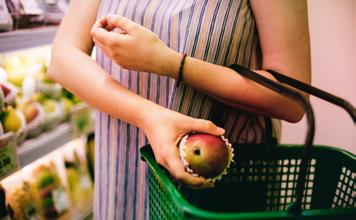
How To Create A Sustainable Life Balance
Written by: Steve Nicholson, Director of Sustainability at Solaris Paper
Many doctors and professionals across Australia often emphasise the importance of not bringing work back home. A study conducted by the American Psychological Association (APA) even found that the two most common stressors among those surveyed were work and money[1]. While having a realistic work-life balance is vital to being happy and healthy, there are many great office habits that if adopted into our personal life, will enrich the sustainability and environment we live in.
Corporate Social Responsibility (CSR) is an integral part of many Australian organisations and their business plans. CSR initiatives offer businesses an active voice in their community and provide a platform to inspire positive change in the environment. CSR opportunities can come in different forms, such as helping groups shoulder financial responsibilities through a donation or by having staff members volunteer at local charities. CSR practices however should not be limited within organisations alone. Many practices and policies that are being used in the office can be easily adapted within our families and homes.
Three areas in which people can implement CSR practices from the workplace into their homes are being more environmentally conscious, giving back to the community through volunteering and ensuring shopping is done in a sustainable and ethical way.
Environment
While being environmentally friendly isn’t a new idea by any stretch, it’s still one of the easiest and most effective ways for people to make a positive impact. Many organisations have enacted certain initiatives to lower the impact that business operations and staff may have on the environment.
Emphasis has been placed on workplace recycling with more bins being placed in office common areas and near printing stations. More businesses are providing free coffee and tea which cuts back on single-use coffee cups. Businesses are also heavily investing in renewable energy sources ranging from solar cells to wind turbines. Pulp and Paper mills are using leftover woodchips from timber as fuel for the production of paper.
On the home front, while most councils conduct weekly recycling, households can take it a step further by eliminating their consumption of single-use items ranging from plastic shopping bags to coffee cups, and even single-use coffee pods. By investing in good quality reusable bags for shopping and smaller mesh bags for fruit and vegetables, families can have a very positive impact on the environment.
Another great way to have a positive impact on the environment from home is by adjusting how we consume our daily beverages. While many Australians enjoy a coffee in the morning or on the way to the office, it’s estimated that Australians use 1 billion disposable coffee cups each year. Those cups in addition to the number of espresso pods being thrown away every day in Australia equates to over 60,000 kilograms of waste each year[2]. By investing in a reusable coffee cup and re-usable coffee pod, the quality of the coffee will remain consistent, without having an impact on the environment.
While investing in solar panels for the home isn’t possible for all households, taking steps to limit the amount of energy used is another way we can have a sustainable impact at home. Turning off lights when you leave a room and limiting the use of air-conditioning and heat when you are not at home are two ways to help the planet and save on utility bills.

Community
Community activism and volunteering is a platform for businesses to give back to society. Businesses can get involved in planting community gardens or by doing a restoration to the habitats of native animals or plants. Additionally, employees sometimes prefer to volunteer time at charities like Foodbank or Australian Red Cross where their time goes directly to helping people in need. While some businesses make financial donations rather than donating time and manpower. Charitable donations can be given to organisations like Kids West, which specialises in providing critical medical equipment for hospitals in Western Sydney. Kids West relies on organisations to partner with them financially in order to give support to the community where it is needed.
Similarly, the whole family can get involved in community activities or volunteering. Often communities have neighbourhood or beach clean-ups where families can take part in picking up rubbish in their community. Additionally, there are annual events such as National Tree Day, where members of the community are encouraged to plant trees to restore their local environment.
Smart Shopping
Businesses shop for supplies just like we do at home, except instead of going to the grocery store, they have suppliers who form a supply chain. It’s critical that when businesses purchase supplies to make their products, those supplies are sourced ethically. With deforestation being a major issue in some Asian and South American countries, it’s crucial that businesses do not purchase any timber or products that were sourced illegally from protected forests.
For many food, wood and paper products, companies audit all aspects of the production process, including the forests from the products are sourced from, the transportation needed to get the timber to a mill, mill operations and how the product gets packaged to ensure it is done in accordance to best practice. To prove that businesses are following these practices, they go through annual certifications where every step on the supply chain is heavily scrutinised.
At home when consumers shop, they are not dealing with supply chains, they are dealing with the final product. It rests on the consumer to ensure that the brands they purchase follow ethical and environmentally friendly processes and are certified to affirm this. Consumers can do this by simply reading the label and looking for a certification such as PEFC or FSC, which pertain to paper and timber products. Consumers can also consider the companies who they buy products to ensure they are meeting the necessary environmental requirements.

It’s All About Balance
Everyone has an important role to play in making our
world a better place. There are many CSR lessons stemming from organisations
that can be implemented within the household and parents can equip their
families with making shopping more educational and fun in that process. So
don’t take your work home today but take some CSR initiatives to have quality
time with your family.
[1] https://www.apa.org/news/press/releases/stress/2014/stress-report.pdf
[2] https://www.abc.net.au/news/2016-02-03/takeaway-coffee-cups-piling-up-in-landfill/7136926
How To Create A Sustainable Life Balance How To Create A Sustainable Life Balance How To Create A Sustainable Life Balance How To Create A Sustainable Life Balance How To Create A Sustainable Life Balance



